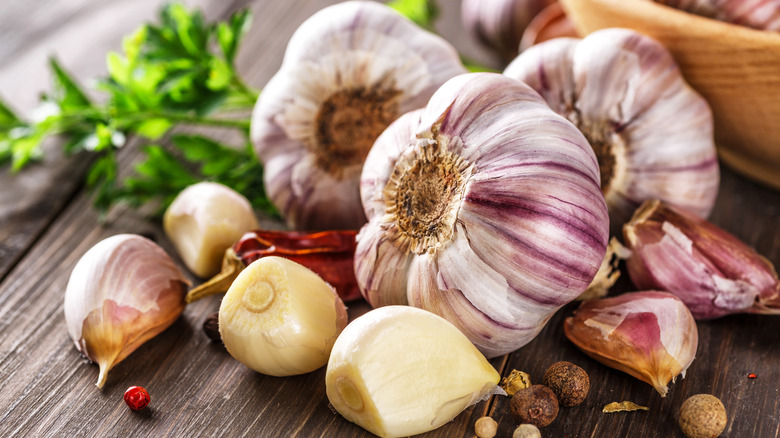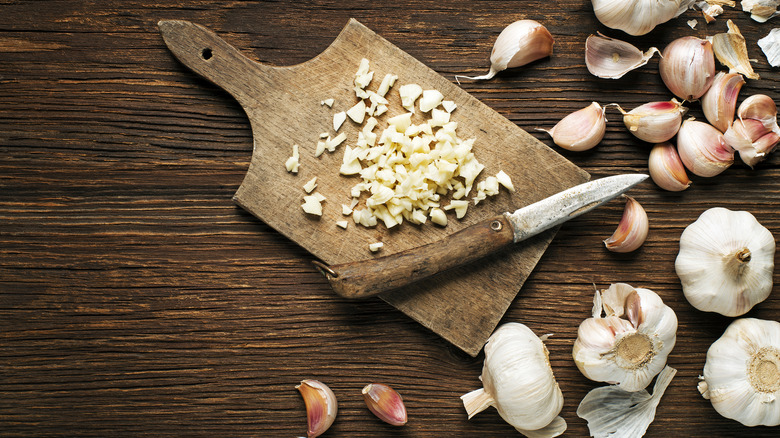Are Garlic Sprouts Safe To Eat (And How Should They Be Used)?
Garlic is one of the most versatile and widely used ingredients in cooking. From savory sauces to hearty soups, this flavorful bulb is essential to many dishes. Not only does it add depth and complexity to a recipe, but it also boasts numerous health benefits and it can even help fight off the common cold — talk about a great reason to eat more garlic!
You can roast, sauté, and even grill garlic to add to dishes, but when you are cooking with garlic, it's important to choose high-quality bulbs. The top priority is choosing bulbs that are firm and free of any soft spots or mold. You should also check to see if your garlic has sprouted, because, if it has, that indicates that it may be old. This doesn't mean, though, that you can't cook with sprouted garlic or that it's unsafe to use — there are just some thing you should know.
Sprouting changes the flavor
You can cook with sprouted garlic, but be aware that the sprouting may change the flavor and the texture. You can remove the sprout, since it may be bitter or tough, but nonetheless, it's safe to consume. In fact, some people actually enjoy the sharper, more intense garlic flavor that you get with sprouted garlic. If you aren't one of those people, but you still need garlic for your dishes, don't just toss out the sprouted garlic — or the sprouts themselves, for that matter! — you can still use them.
For things like soup, where you just need garlic to add some flavor, you can use the sprouts to help boost up the dish. If you want to use the clove part of the garlic for other dishes, you can take the green sprouts out to mellow the bitter flavor. The garlic will still have a stronger flavor than fresher garlic, but that will probably not stand out in your soups, stews, and sauces. If you are afraid it will, though, you can use less garlic than you normally would for the dish you're making.
When you should not use sprouted garlic
Sprouted garlic won't make you sick, but there are times when you should not use it. If your recipe needs a milder garlic taste, or if the garlic won't be cooked, you should discard the sprouted garlic and opt for one that is milder in flavor so that you don't overpower your dish. That goes for things like homemade salad dressings that are consumed raw.
Even in dishes that are cooked, like a roasted garlic chicken or even garlic mashed potatoes, where you need to use a lot of garlic, you should use the milder, fresher garlic so that you get a smooth flavor. This allows the garlic flavor to shine, not sour the meal. If you start cooking and find that you only have sprouted garlic to work with, you can mellow the bite a bit by peeling the garlic, then boiling it for 3 to 5 minutes.


